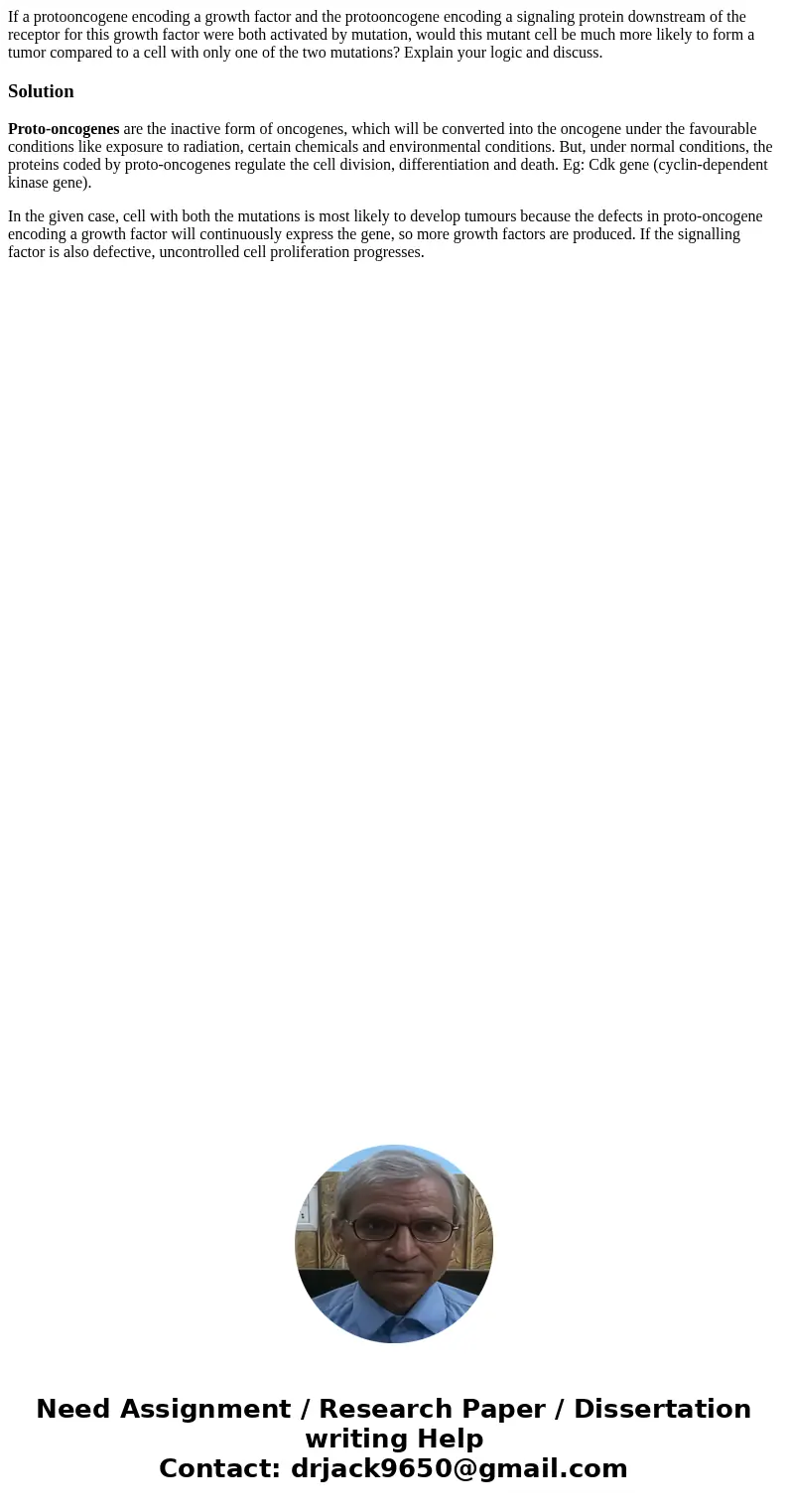If a protooncogene encoding a growth factor and the protoonc
If a protooncogene encoding a growth factor and the protooncogene encoding a signaling protein downstream of the receptor for this growth factor were both activated by mutation, would this mutant cell be much more likely to form a tumor compared to a cell with only one of the two mutations? Explain your logic and discuss.
Solution
Proto-oncogenes are the inactive form of oncogenes, which will be converted into the oncogene under the favourable conditions like exposure to radiation, certain chemicals and environmental conditions. But, under normal conditions, the proteins coded by proto-oncogenes regulate the cell division, differentiation and death. Eg: Cdk gene (cyclin-dependent kinase gene).
In the given case, cell with both the mutations is most likely to develop tumours because the defects in proto-oncogene encoding a growth factor will continuously express the gene, so more growth factors are produced. If the signalling factor is also defective, uncontrolled cell proliferation progresses.

 Homework Sourse
Homework Sourse